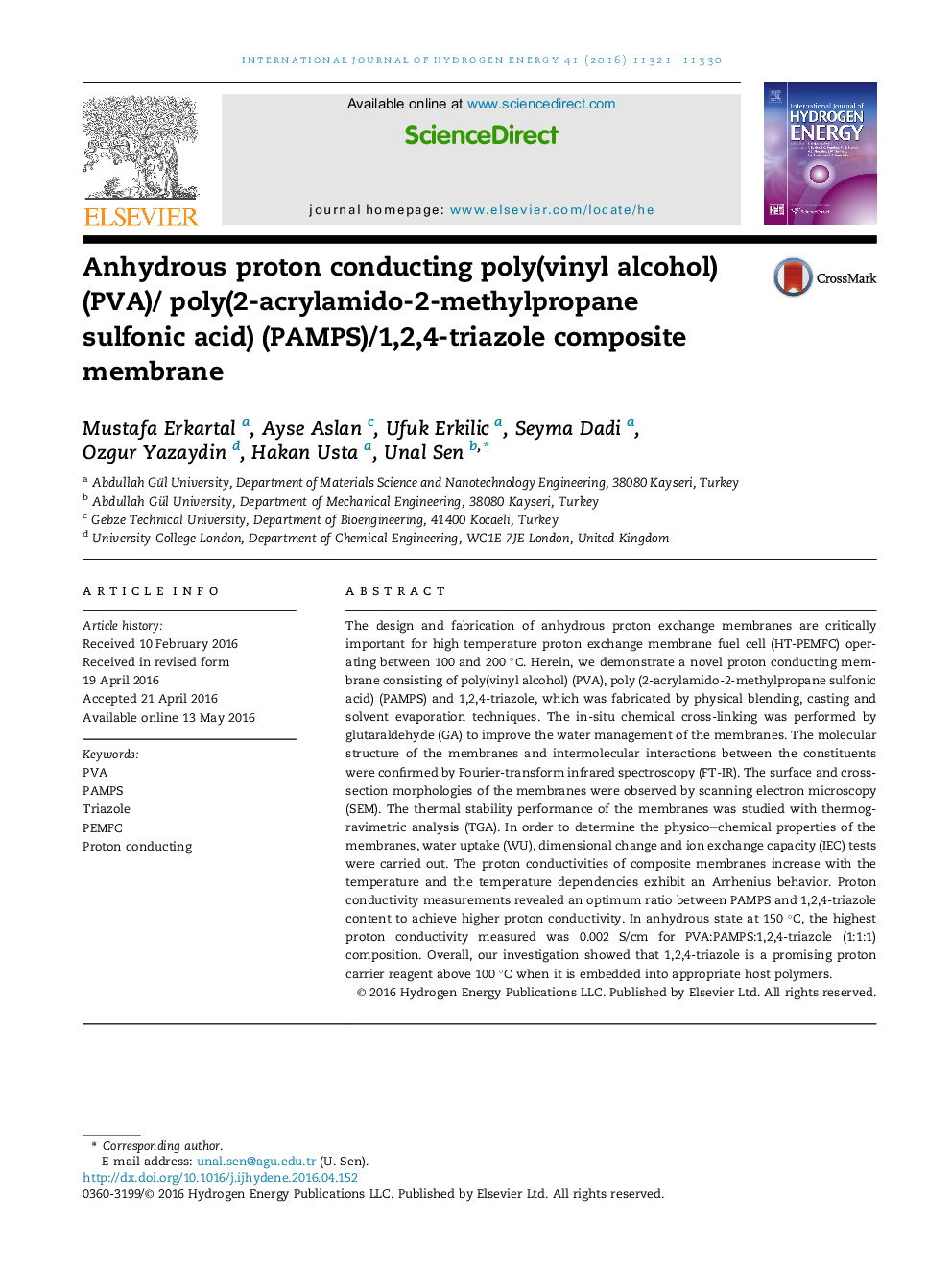| کد مقاله | کد نشریه | سال انتشار | مقاله انگلیسی | نسخه تمام متن |
|---|---|---|---|---|
| 1269564 | 1497399 | 2016 | 10 صفحه PDF | دانلود رایگان |

• Proton conducting PVA/PAMPS/1,2,4-triazole composite membranes were prepared.
• Structural and physicochemical properties were investigated for all membranes.
• Proton conductivity of the membrane PVA:PAMPS:1,2,4-triazole (1:1:1) was 0.002 S/cm.
The design and fabrication of anhydrous proton exchange membranes are critically important for high temperature proton exchange membrane fuel cell (HT-PEMFC) operating between 100 and 200 °C. Herein, we demonstrate a novel proton conducting membrane consisting of poly(vinyl alcohol) (PVA), poly (2-acrylamido-2-methylpropane sulfonic acid) (PAMPS) and 1,2,4-triazole, which was fabricated by physical blending, casting and solvent evaporation techniques. The in-situ chemical cross-linking was performed by glutaraldehyde (GA) to improve the water management of the membranes. The molecular structure of the membranes and intermolecular interactions between the constituents were confirmed by Fourier-transform infrared spectroscopy (FT-IR). The surface and cross-section morphologies of the membranes were observed by scanning electron microscopy (SEM). The thermal stability performance of the membranes was studied with thermogravimetric analysis (TGA). In order to determine the physico–chemical properties of the membranes, water uptake (WU), dimensional change and ion exchange capacity (IEC) tests were carried out. The proton conductivities of composite membranes increase with the temperature and the temperature dependencies exhibit an Arrhenius behavior. Proton conductivity measurements revealed an optimum ratio between PAMPS and 1,2,4-triazole content to achieve higher proton conductivity. In anhydrous state at 150 °C, the highest proton conductivity measured was 0.002 S/cm for PVA:PAMPS:1,2,4-triazole (1:1:1) composition. Overall, our investigation showed that 1,2,4-triazole is a promising proton carrier reagent above 100 °C when it is embedded into appropriate host polymers.
Journal: International Journal of Hydrogen Energy - Volume 41, Issue 26, 13 July 2016, Pages 11321–11330